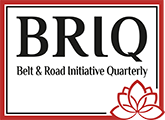Editorial
The rise of humanity in Africa
There is a broad consensus that we are at a pivotal moment of change in the international system. The debate centers on whether hegemony will continue to dominate or a more equitable system of international relations will emerge, led by nation-states in the developing world. Critically, the ability of states challenging Atlantic dominance to transform their collaborative platforms into a hub for an alternative order is vital. Creating this new order demands the development of alternative mechanisms endowed with the capability and inclusiveness necessary for tangible achievements.
Asia has decisively marked its influence on the 21st century, as we draw close to the end of its first quarter. The continent’s progress, with China leading the way, is lauded for its burgeoning skilled labor force, advanced technological achievements, expanding knowledge through scientific innovations, and economic growth.
Asia’s ascent is not happening in isolation. Along with Latin America, Africa is also on the rise, buoyed by its abundant natural resources, youthful labor force, and relatively steady growth trend. Presently, the Republic of South Africa is playing a pivotal role in the BRICS, a key initiative shaping the new world order. Furthermore, governments in Africa that once collaborated with the West and were exploited for centuries are now being systematically dismantled. The second wave of independence movements, starting in the 2010s and following the initial wave of independence in the 1960s, is significantly impacting both the continent and its former colonizers. The new governments emerging from changes in leadership in countries like Mali, Burkina Faso, and Niger are fortifying the pan-African movement for independence, united in their opposition to Western hegemony.
African nations, which had led the Non-Aligned Movement at its inception, are increasingly collaborating with Asia. Similarly, Asian countries facing challenges from Atlanticist influences are seeking stronger ties with Africa. Partnerships across a wide range of sectors with nations such as China, Russia, Türkiye, Iran, and India are flourishing at an unprecedented pace. Moreover, deepening cooperation with countries like Saudi Arabia, which are pursuing more independent policies from the West, is significantly aiding African nations in their effort to break free from neocolonialism. The trend towards regional cooperation, which has contributed to the decline of the unipolar world order, is now encompassing Africa as well.
These developments are shifting the balance of power not just on a continental level but globally as well. The erosion of Western hegemony is unlocking opportunities for Africa’s wealth to be utilized for the benefit of its people, enabling South-South cooperation previously impeded by imperialist actions, and consequently generating positive results for all stakeholders. Through this lens, overcoming neocolonialism in Africa is emerging as a shared objective, not just for African nations but for the entire developing world. The movement to break free from the constraints of neoliberalism and globalization is gaining momentum across Africa.
It is becoming clear that the 21st century will be defined not only by Asia’s ascendance but also by Africa’s resurgence.
***
With this issue, BRIQ marks four and a half years of publication and embarks on a new venture. Since our debut, the journal has been available in both Turkish and English. However, from this issue forward, the print edition will be exclusively in Turkish, while the English version will transition to an electronic format. Both the Turkish and English e-journal versions of BRIQ are accessible on our website. We have also started efforts to release BRIQ in e-journal format in Chinese, Arabic, Persian, Russian, Spanish, and French. Our goal is to evolve BRIQ into a journal available in the main languages of the countries participating in the Belt and Road Initiative. With the support of our readers, we are hopeful of achieving this ambitious objective.
FİKRET AKFIRAT
Editor-in-Chief
